Inconsistent enrollment strategies create frustration for students
BY AINSLEY SMYTH news@thesunflower.com
The end of each semester is a busy time for Wichita State’s academic advisers, with students trying to get advice and register for the next semester before classes fill up.
Andrea Gartman, advising director for the College of Engineering, said her days during this season are often filled with back-to-back appointments.
“I’d say I meet with 12 students easily in a day,” Gartman said. “If (my schedule is) packed, it means other students can’t schedule.”
But advising services and availability vary across departments, as each school of study has its own unique advising requirements and methods. Some students have found that these variations, in addition to most advisers’ busy schedules, make it difficult — if not impossible — to book appointments toward the end of the semester.
DIFFERENCES
BETWEEN COLLEGES
Each academic college has its own advising department, and each advising department has slight differences. For example, the Office of Online and Adult Learning employs advisers to help online students. In contrast, first-year and some international students receive advising through OneStop Student Services.
Due to its unique accreditation, engineering is the only academic college that requires all students to attend advising appointments before registering for classes.
Student Government Association Sen. Joseph Robertson said, as an engineering student, he’s had his fair share of trouble with advising.
After a family emergency forced him to cancel his appointment last fall, he said he was unable to schedule another meeting until late January to register for classes, a big problem in a rigorous program that requires many classes to be taken in a certain order.
SELF HELP
The Degree Works audit can be found by logging into MyWSU. Under the “myClasses” tab, students can find the “View My Degree Evaluation/Audit” section and click on “Run My Degree Works Audit.”
“You have something like (with) me where stuff happens and that’s not the adviser’s fault,” he said. “She can only do so much with what she has, but she doesn’t have enough resources to have any latitude or for an emergency to happen.”
Other differences between departments include the ratio of students to advisers, how students are divided up among advisers and whether the offices allows walk-ins. These can all affect students’ experiences.
BY ANANDA SMITH anandanicholesmith@gmail.com
With seven seconds left in the game, Wichita State’s men’s basketball’s senior center Quincy Ballard threw home a slam to tie its game against East Carolina University (ECU) on Saturday night. Then, the Pirate’s senior guard RJ Felton sunk a buzzer-beating 3-pointer, sending WSU home with a loss in Charles Koch Arena, 75-72. The Shockers mounted a comeback late in the second half, led by senior guards Xavier Bell and Justin Hill. With just over a minute left, Hill hit a crucial 3-pointer to tie the game again at 68-68, setting up the dramatic finish.
“They’re good players as well, they make some really tough plays. You’ve got to tip your hat off to them,” Hill said about ECU. “You know, they work just like how we work. But we are going to fight. It doesn’t matter how much we’re down. We’re going to keep fighting, keep playing, especially on our home court.” But Bell said as the second half progressed, it became more obvious that “it just wasn’t our night.”
With the loss, Wichita State continues a rocky start to American Athletic Conference (AAC) play, dropping to 1-4 against AAC opponents and 11-7 overall this season. The Pirates jumped to 10-9 overall and 2-4 in the conference, one spot ahead of WSU in the AAC standings.
“You know it doesn’t feel good. Nobody wants to lose, but I feel like the last possession, maybe all five of us could’ve crowded the ball better or something,” Hill said.
“But I still think we got a good hand up on the ball. He just made a shot.”
The Shockers kept pace with the Pirates throughout most of the first half, maintaining momentum and trading buckets. At the 10:58 mark, the score was tied 16-16.
The score remained close and by halftime, ECU held a slim 36-33 lead, leaving Wichita State within one possession.
ECU relied on its bench throughout the opening period, outscoring the Shockers 18-3 from its non-starters.
After the break, the Pirates began to take control. ECU’s senior forward C.J. Walker led with a dominant second half, scoring 19

of his 28 game-high points. Wichita State struggled to maintain its offensive rhythm during stretches of the half, allowing ECU to extend its lead.
“We just have to figure out ways to pull away and establish a lead before it gets to that point,” senior guard Xavier Bell said. “So we kind of put ourselves in the position to feel like this at the end of the game.”
Despite the Pirates’ surge, the Shockers didn’t back down. Junior forward Corey Washington was instrumental in keeping Wichita State competitive, finishing with eight offensive rebounds and 10 defensive rebounds. His presence on the board helped Wichita State gain second-chance opportunities, particularly in the paint, where they dominated with 52 points compared to ECU’s 28.
Wichita State’s head coach Paul Mills noted that the Shockers’ dominance in the paint should have resulted in more free throws, as the team went just 5-10 from the line.
“If you’re going to turn around and dominate darn near double their paint points, there’s no reason we shouldn’t be on the plus side
Faculty, admin struggle to agree on weather policy
BY AINSLEY SMYTH news@thesunflower.com
Less than a month into 2025, Wichita State had to transition classes to remote delivery — once on Jan. 6 and again on Tuesday. Both decisions, announced via email, were based on an inclement weather policy that faculty and administration have struggled to agree on for nearly a year.
The week before the fall semester started, the university’s Faculty Senate debated possible updates to the university’s inclement weather policy, which outlines when and how the decision to cancel in-person classes is made. It wasn’t the first time the topic faced controversy.
Currently, the policy says that, “When the University announces an inclement weather event, WSU classes shall move to remote delivery and remote operations.”
When the policy was enacted last year, some faculty felt their perspectives weren’t taken into account. In particular, they wanted faculty to have more autonomy when it comes to deciding whether to cancel class or hold it remotely.
Last week, Faculty Senate President Mathew Muether said an updated policy would likely add language stating that classes could continue through “remote delivery,” which could include meeting over video or communication over Blackboard.
Faculty members still expressed dissatisfaction and a decision was not reached. Chase Billingham, an at-large senator and associate professor of sociology, has been a vocal critic of the policy both when it was enacted and during recent discussions.
“This new language that’s in the revised document here still prioritizes and puts the burden upon faculty members to continue offering remote classes,” Billingham said. “The sentiment that emerged (last semester) … was about opting in to remote delivery if a faculty member chooses to do so.”
On Wednesday, Director of Strategic Communications Lainie Mazzullo-Hart said in an email, “The policy is currently under draft and discussion, so right now, we do not have a final policy to share.”
With policy still under debate, it’s likely future inclement weather updates will continue to create confusion at the university.
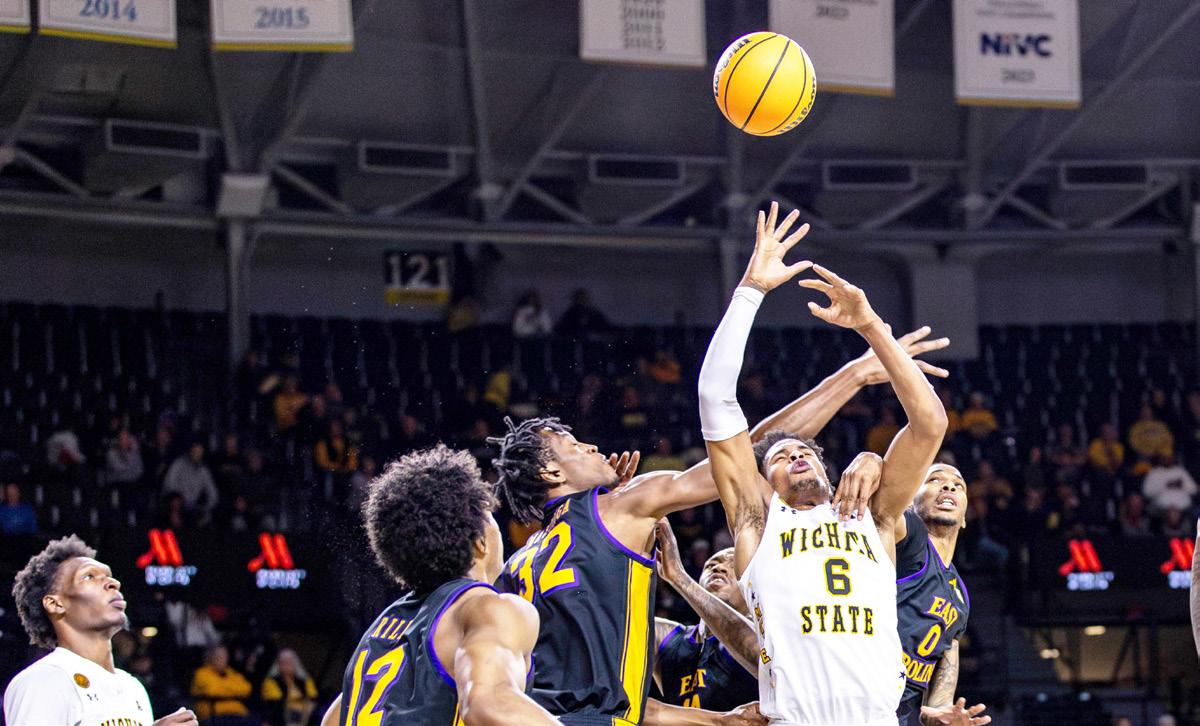
from a free throw line,” Mills said.
“We’re almost twice as much as them and for us to not have those opportunities, it’s just obviously rare, given the fact that we’re top 50 in the country. But when you are dominating in the paint at that level, it usually leads to more free throw opportunities.”
WSU ended the game on 43.1% shooting from the floor with a 33.3% mark from deep. Washington led the team with 19 points to go along with his 18 rebounds, marking a new season-high in rebounds and his fourth double-double of the season. Bell followed behind Washington in points with 18 and two other Shockers eclipsed double-digit scoring. Despite the loss, Wichita State showed more signs of resilience and grit in the AAC and will get another chance to etch a mark in the win column on Jan. 23 with a road matchup against the University of Memphis. Tipoff is scheduled for 6 p.m. in the FedExForum and can be streamed on ESPN2.
How campus is changing

BY ALLISON CAMPBELL editor@thesunflower.com
WILKINS STADIUM
By the end of March, Wichita State’s softball team will have a new indoor practice facility to call home.
This upgrade to Wilkins Stadium is part of a multi-stage plan to add amenities, including a full-size turf infield, batting cages and locker rooms over the next few years.
With the steel structure almost complete, the unveiling of the indoor practice facility in March will signal the conclusion of the first phase of the project and the start of the next phase, which will add an office complex to Wilkins Stadium. There is currently no estimated date for completion of this next phase.

UNIVERSITY STADIUM
The first phase of the University Stadium — formerly Cessna Stadium — construction project is well underway. With the completion of Phase 1A scheduled for May 2025, this first building stage, according to Director of Strategic Communications Lainie Mazzullo-Hart, includes bleacher seating, a ticketing pavilion, restrooms, concession stands and a new plaza and parking lot. Phase 1B, which will see the sports field widened and a nine-lane track installed, is set to begin after the conclusion of the KSHSAA Track and Field State Championship on May 30 and 31.
MEETING NEEDS AS ENROLLMENT CLIMBS
Alicia Newell, the assistant vice president of Student Affairs, previously worked as an adviser in the College of Engineering. She said that over time, the university has needed to change its advising model to meet the needs of students, especially as enrollment increases.
“We saw that there was definitely this increase of incoming students,” Newell said. “And that’s where we began to look at, ‘How do we support academic advising at Wichita State?’”
Newell said one part of that puzzle was creating first year advising, housed under OneStop. Nearly all freshmen are required to enroll in this office.
The university also added success coaches, who work with students on study skills and procrastination, as well as coordinate with advisers and other student resources.

PICKLEBALL COURTS
After its location and funding were contested between the Student Government Association and university administration last semester, Wichita State’s new pickleball courts are now being carved out between Hubbard Hall, Lindquist Hall and the Heskett Center.
The courts will replace the original pickleball playing area, which was demolished to make room for expansions to Wilkins Stadium outside Heskett.
Construction on the new courts began last week. The three new sets of pickleball courts are set to be completed during the summer of 2025, just in time for peak pickleball weather.

CORBIN EDUCATION CENTER
Following a chilled water line break last March, the Corbin Education Center is now free of water and water damage. The College of Applied Studies (CAS) building — designed by renowned architect Frank Lloyd Wright — was originally anticipated to reopen in September 2024, but flooding in the basement and subsequent damages delayed repairs.
However, Executive Director of Facilities Services Eason Bryer said there are no other anticipated delays, and Mazzullo-Hart predicts that CAS students and faculty will “likely move back into Corbin at the end of the spring 2025 semester.”
Zachary Brown, director of advising for the Barton School of Business, said business students are divided by last name and assigned to an adviser. But they don’t necessarily have to see that adviser if another is available sooner or they prefer to meet with a different person. The Fairmount College of Liberal Arts and Sciences (LAS) follows this model, too, according to LAS advising director Patricia Phillips.
Phillips said LAS also takes walk-ins if students urgently need to see an adviser.
“Every day, we have a triage adviser so that one person in the office doesn’t have appointments,” she said. “So if somebody has an emergency ... there’s always someone around if somebody needs to walk in and see somebody.”
ACADEMIC ADVISER FEEDBACK ACT
Student Government Association (SGA) Sen. Joshua Mallard wrote a piece of legislation asking the university
MISSION The Sunflower — both in print and online — will be a timely resource of information about the Wichita State University community. It will report on news, issues, activities, academics and athletics, in addition to offering a forum for discussion, reviews and commentary. It will also be an effective learning experience for students, who will have the final authority over what is published. The Sunflower is a member of the Associated Collegiate Press, College Media Association and the Wichita Journalism Collaborative.

TikTok
Turmoil
TikTok was gone, then it was back.
BY AINSLEY SMYTH news@thesunflower.com
The popular video app TikTok shut down on Sunday, Jan. 19, after a new law passed by Congress last year forced it to either separete from its Chinese parent company ByteDance or face a ban in the U.S. But just hours later, it was back.
The company made several announcments providing updates on the situation, citing efforts by newly inagurated President Donald Trump to work out a deal for TikTok to continue in the U.S.
Through an executive order, the president gave the app a 75-day reprieve to find an American buyer.
Wichita State students expresssed mixed opinions on the situation, with some saying a TikTok ban might be a good thing and others criticizing it as censorship.
to look into how it might more effectively offer advising services, as well as how advising offices collect feedback from students.
Mallard said he and the four other members of the SGA Academic Affairs committee worked on the legislation together.
In November, the Student Senate passed the resolution unanimously. But it was later vetoed by Student Body President Kylee Hower.
“I think President Hower just wanted more details, more proof of these things happening,” Vice President Matthew Phan said. “I’m not necessarily saying that we disagree with the resolution; (we) just (wanted) more evidence, more details for advisers.”
Phan said despite the executive branch not approving the resolution, he’s been working with the Academic Affairs committee, as well as with university leadership and advising departments, to see if any changes can be made to improve students’ experiences with advising.
Mallard expressed frustration that the resolution was vetoed. He said the legislation, which called
WHAT ARE WSU STUDENTS SAYING ABOUT IT?

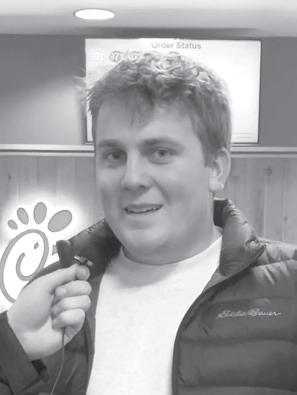
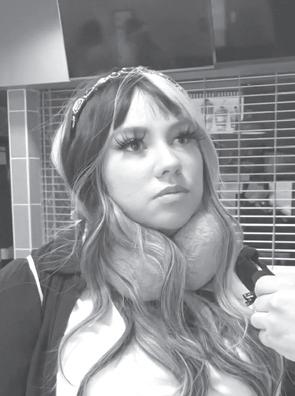
“I don’t have a lot of thoughts. I think it’s probably better for the world if TikTok is to go away. But I will say ... I use TikTok a lot so it will affect me. So I’m going to have to pick up some new hobbies for sure.”
— ELENOR ENGLE
“I think there needs to be more regulations by America to make sure no information’s being stolen but I also don’t believe it should be completely banned.”
— WILLIAM NEWTON
“I don’t have TikTok ... I get brain rot and bed rot really bad anyways from Facebook and Instagram, so when TikTok was banned I felt a sigh of relief, I was like, “That’s one more time waster I don’t have to be tempted by.’”
— SARYN STRACK
for a survey of students about their experiences with advising, would go a step further than the surveys sent out to students after their advising appointments.
The post-appointment surveys for LAS show students reported mostly positive experiences.
“It was asking that the survey be sent out regardless of if you go (to advising) because there are seniors who have problems but they just sometimes don’t go to advising because of the fact that it’s not great, and they just try and figure it out themselves,” Mallard said.
Robertson said he understands why Hower vetoed the resolution, but doesn’t think it was the right decision.
“Maybe vetoing something because you can’t find any evidence of a thing is like, kind of chicken and the egg,” he said. “We need this to be able to tell whether or not we actually have an issue … I don’t know that it’s my favorite decision.”
WORKING WITH ADVISERS
Many advising directors said

ADVERTISING MANAGER Kiona Brown admanager@thesunflower.com The Sunflower, founded in 1896, is the student-run newspaper covering Wichita State University. The print edition is published
ARTS & CULTURE MANAGER Maleah Evans arts@thesunflower.com
PODCAST PRODUCER Taliyah Winn podcast@thesunflower.com
they recommend students sign up for an appointment as soon as possible after class lists become available in order to have the best chance of getting an appointment before registration begins.
Gartman said she understands the frustration of not being able to make an appointment right away, but that some students also need to be more diligent about checking their communication and signing up as soon as possible.
“(I) love our students, but they’re not always checking emails very regularly,” she said.
Brown said he recommends students use their Degree Works audit prior to their advising appointment, as well as check it whenever needed.
Several advising directors said they also welcome student feedback, both through the post-appointment surveys and by contacting the advising office or their adviser.
“If the students have an idea of how we can do something better, we’re willing to try it,” Phillips said. “The whole reason we exist is to help them.”
editor@thesunflower.com
ADVERTISING Kiona Brown: 316-978-6905 admanager@thesunflower.com FACULTY ADVISER Amy DeVault: 316-978-6052 amy.devault@wichita.edu
A NOT-SO WINTER WONDERLAND

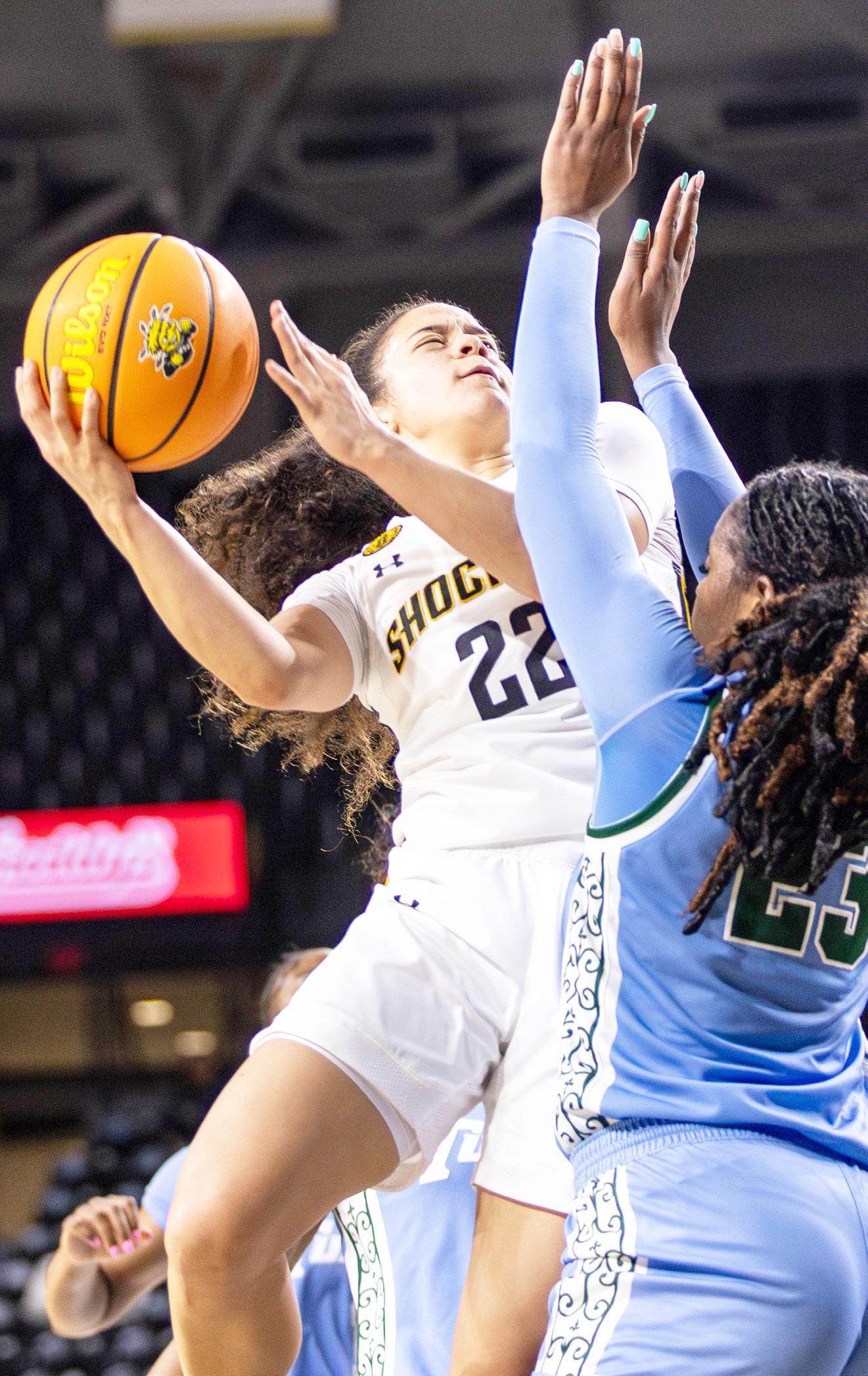

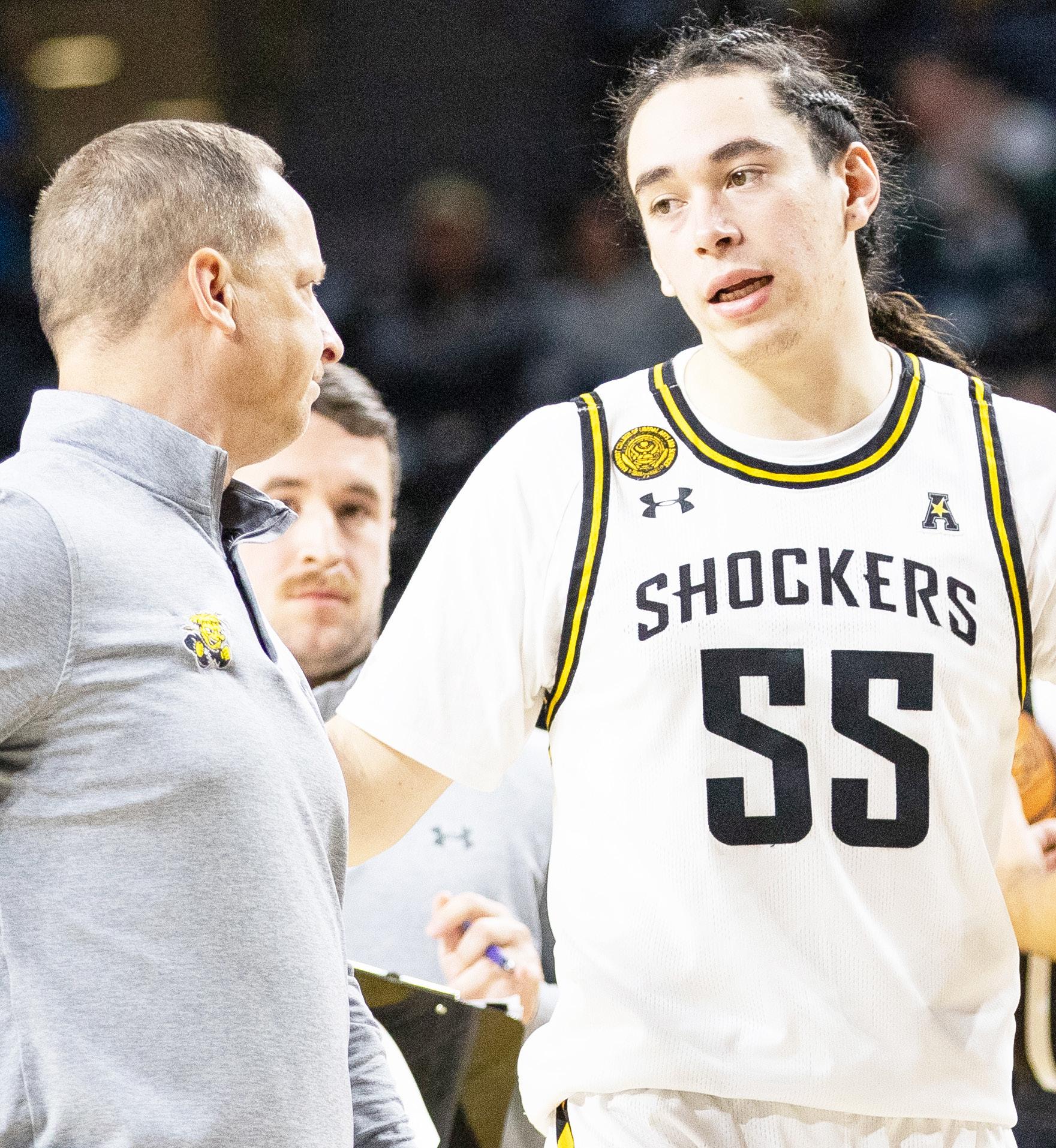


ARTS & CULTURE
‘We
do it to honor him’
Ulrich reflects on MLK pop-up exhibit
BY MALEAH EVANS arts@thesunflower.com
To celebrate and honor Martin Luther King Jr., the Ulrich Museum of Art selected pieces that represented his mission and work for a pop-up exhibit.
“They’re artists and collections of works that kind of speak to his political engagement and social activism,” said Taryn Trapani, the registrar and collections manager at Ulrich. “That was my theme to go off of. (I selected) Native (American) or Indigenous artists, Black artists, queer artists.”
King is well-known for his non-violent activism during the 1950s and ‘60s Civil Rights Movement. Through advocating and protesting, King pushed to end segregation based on race.
The pop-up exhibit was designed to make audiences and viewers reflect on how society continues to manage social and political issues that many face every day within the framework of King’s work.
Each piece in the exhibit was by an artist from an
underrepresented community and deals with themes of politics and activism. Several mediums were employed throughout the exhibit, including photographs and paintings.
One of the pieces on display was by Chinese artist Ai Weiwei. It was a COVID19 mask with a surveillance camera drawn on it. It was titled “Surveillance, MASK.”
The exhibit also included pieces from the Gordon Parks Foundation, which works to preserve the photographs of Gordon Parks, a photojournalist who was known for photographing civil rights issues, poverty and African Americans.
Ulrich has curated pop-up exhibits in honor of King in the past. While the exhibit has since closed, Trapani said the museum plans to continue them in the future.
“We do it just to honor him because it’s important for us to honor underrepresented artists and communities as well,” Trapani said. “By showing these artists and giving them space and a spotlight, (we want to) make audiences reflect.”

‘Nosferatu’ reimagines hauntingly magnificent horror classic

Piper Pinnetti opinion@thesunflower.com REVIEW
“Nosferatu” opts for shadows over light, dread over comfort and — above all — leaves an unforgettable mark. Directed with surgical precision, this reimagining of the 1922 classic stands as a testament to how horror at its best can unsettle, mesmerize and provoke thought all at once.
Lily-Rose Depp’s performance as Ellen Hutter is transformative. She brings an incredible depth to the role, showcasing vulnerability and emotion. Her portrayal of a woman plagued by dark visions and an overpowering sense of dread feels painfully real, as her tears flow and her emotions take control of the scenes.
Depp’s subtle grace and amazing acting elevate the character, making Hutter the beating heart of the film. It’s a career-defining moment that proves Depp is more than capable of commanding the screen.
Then there is Bill Skarsgård as Count Orlok. His portrayal of the vampire antagonist is chilling, a perfect embodiment of predatory evil. Through prosthetics, deliberate physicality and excellent dedication to voice, Skarsgård becomes the stuff of nightmares. Orlok is a force of nature — or technically against nature — and a manifestation of horror that leaves you squirming with unease.
The film’s visual language is equally breathtaking. Shadows glue to the characters, wrapping them in an atmosphere of isolation and eeriness. Every scene has a beautiful period house with pretty curtains and great wood-worked furniture. The sky was covered in clouds; rats ran around the streets, tying to themes of sickness and gloom. As the movie progressed the rats took over more areas of the film, in buildings and on people, showing how rapidly sickness can spread. The color palette grew darker and less colorful, despite never being vibrant in the first place.
The use of darkness and little light isn’t just aesthetic — it’s storytelling. It mirrors the moral
Campus is full of fun and hidden gems that you should experience before
decay and lurking evil that defines Nosferatu’s world.
Of course, a great horror movie isn’t just about what you see; it’s about what you feel. The film’s soundtrack amplifies the emotional stakes at every turn. From the creeping dread that underscores Orlok’s presence to the moments of calm in Wisborg. The music is alive, with rising and falling moments like a character. It frames the scenes to match the intensity or dullness of a moment.
But let me be clear, “Nosferatu” is not for everyone. The film doesn’t shy away from grotesque imagery or sexual themes that may be uncomfortable or triggering for some viewers. It walks a razor-thin line between repulsion and interest. For those willing to embrace the darkness and discomfort, the payoff is extraordinary.
Horror is often dismissed as low art, as something that relies on gore or shock value rather than inspire. But “Nosferatu” reminds us that the genre can do all the above. It can unsettle you to your core while leaving you in awe of its artistry.
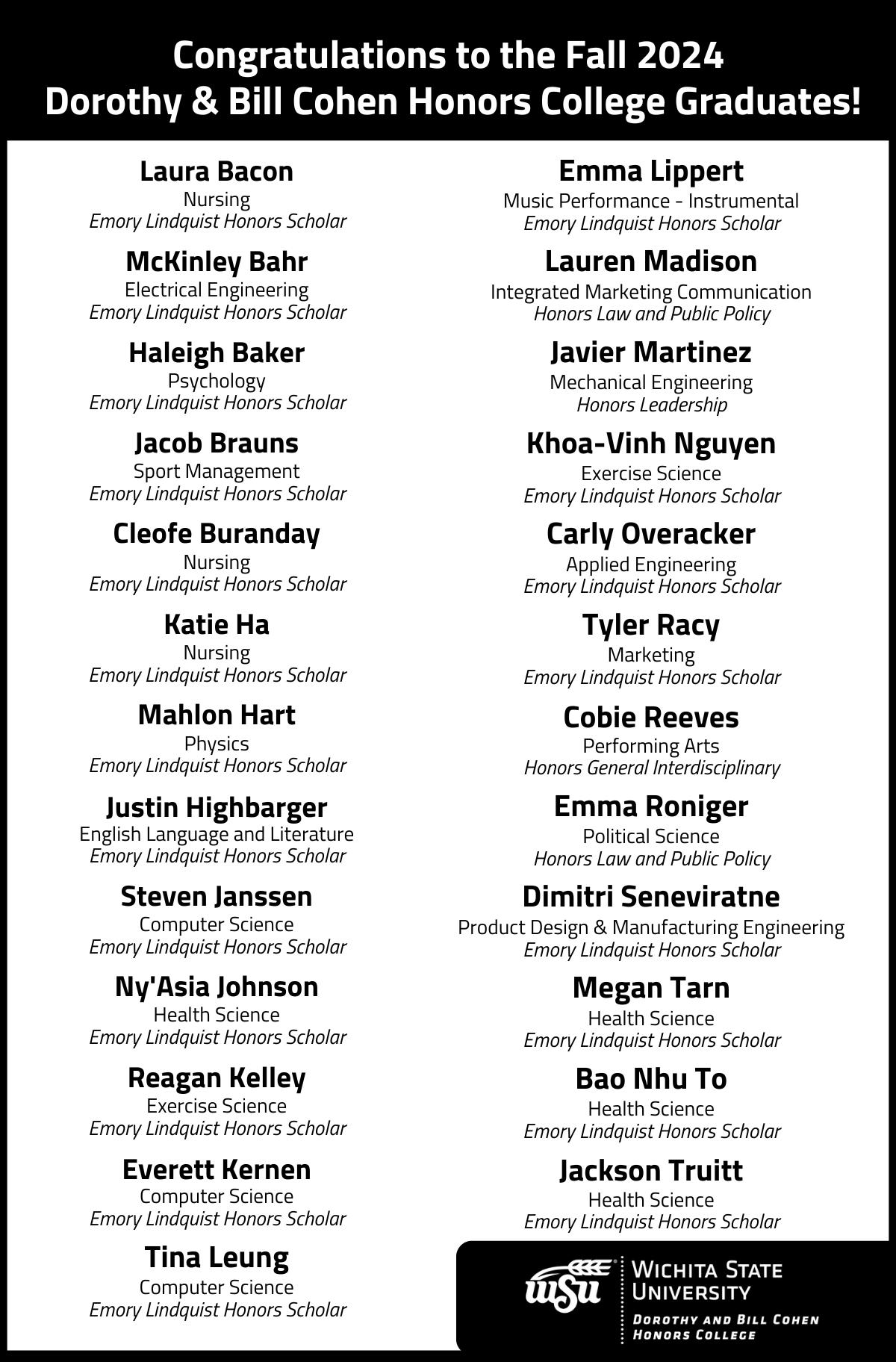













OPINION
TikTok ban challenges free speech, raises questions about government overreach

Piper Pinnetti
At its core, TikTok functions as a platform for self-expression, creativity and community interaction. Its ban raises a critical question on government interference with our digital freedoms. Free speech protections are a cornerstone of American democracy and principles.
While TikTok’s ties to China have fueled security problems, banning an app so deeply embedded in society risks setting a dangerous precedent.
WHAT HAPPENED?
Over the weekend, TikTok briefly went dark across the United States after the Supreme Court upheld a nationwide ban on the platform. The ban, effective Jan. 19, requires TikTok’s China-based parent company ByteDance to sell the app to a U.S.-approved buyer or face removal from app stores and web hosting services altogether.
ByteDance challenged the ban, arguing it violates free speech protections for millions of U.S. users, but the Supreme Court unanimously rejected the claim.
While the Biden administration initially deferred action to the new law that forces ByteDance to sell TikTok, President Donald Trump signed an executive order on Monday to provide a 75 day extension. The extension allows the app time to adjust without the U.S. enforcing the new law.
The ban stems from national security concerns, with lawmakers citing the potential for user data to be accessed by the Chinese government.
IMPLICATIONS
Despite the app’s brief downtime, its forced shutdown marks an unprecedented step — the biggest nationwide ban of a social media platform in the U.S. This move has sparked fierce

debate about free speech and government interference.
Some have dismissed free speech concerns in this case, arguing the platform’s ties to a foreign government make it a unique threat or that a social media platform doesn’t concern free speech. But this perspective overlooks the broader implications.
What’s to stop the government from targeting other apps or brands that don’t align with U.S. interests and preferences? The primary concern is data security, but the government isn’t settling with any non-Chinese company. They are specifically requesting that the entity sells only to the U.S.
TikTok has grown over the almost decade. It has offered everything from lighthearted and sometimes cringey dance trends to personal experiences that help others in need. I have begun learning social media for my communications experience. Local businesses have leveraged TikTok to reach broader audiences, and I have seen people I know begin to launch their social media presence on the app. It has changed from entertainment and reached beyond to a vital tool for communication and economic opportunity.
The government has addressed TikTok related security concerns before but with a more measured approach. In December 2019, the U.S. Army and Navy banned TikTok on government devices, labeling it a security risk.
The Pentagon later recommended all military personnel delete the app from personal devices, and by 2023, the Defence Department issued an interim rule banning TikTok on all devices connected to its network.
These targeted actions addressed security risks without infringing on the rights of the general public. Maintaining restrictions for individuals with access to sensitive government information — such as military personnel or federal employees — could mitigate risks while preserving broader public access to the platform. By contrast, a blanket ban punishes millions of everyday users who rely on TikTok for a source of income, creative expression to professional development.
The TikTok ban highlights the tension between national security and individual freedoms. While the app’s links to China can warrant scrutiny, an outright ban sets a troubling precedent for government intervention in digital spaces.
A more balanced approach — such as targeted restrictions — would address legitimate concerns without undermining the values of free speech and innovation that TikTok has embodied.
As TikTok’s fate hangs in the balance, Americans must consider the broader implications of this decision — one platform silenced today could be potential for more risk tomorrow.
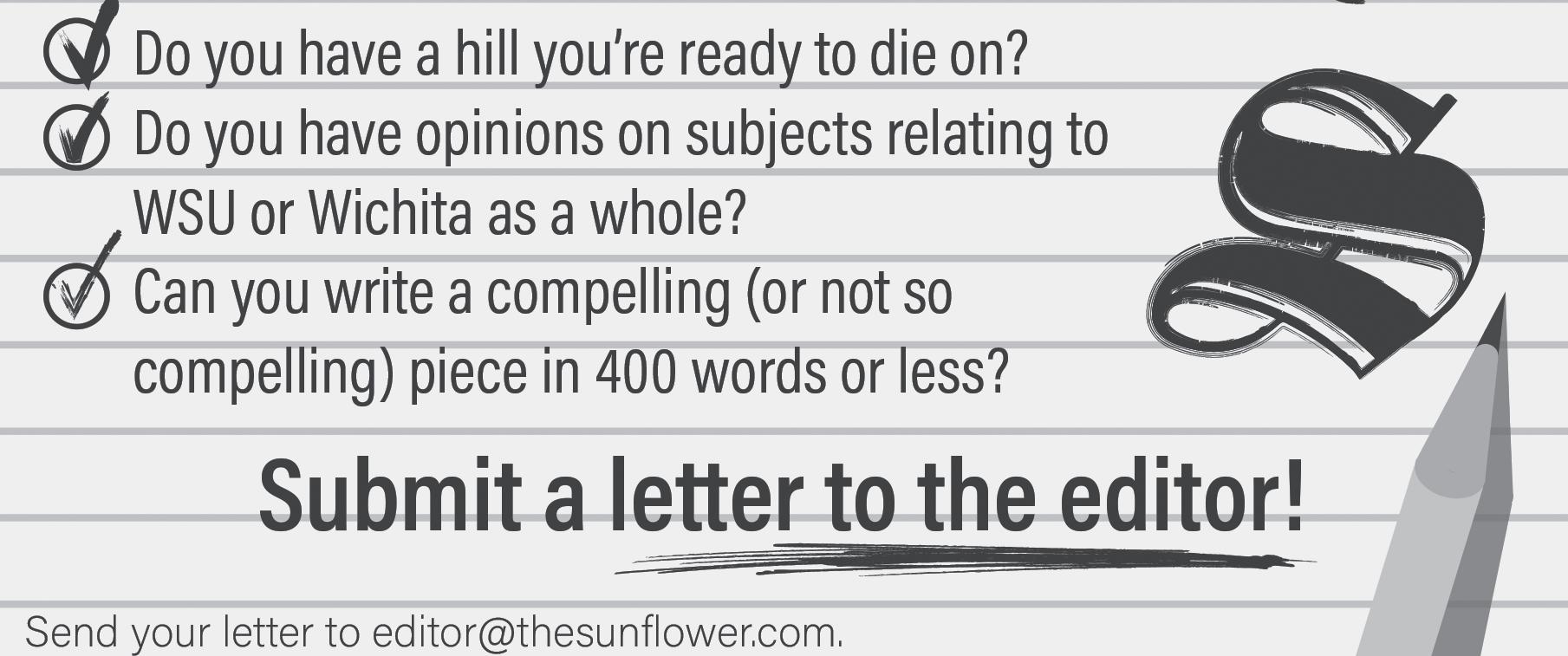

Charges for canceling WSU housing contracts unfairly burden students

When Wichita State students decide to cancel their on-campus housing contracts, they often find themselves faced with cancellation fees that feel less like policy and more like a money grab.
A review of the cancellation fee structure for the 2024-2025 academic year at WSU reveals just how unreasonable these charges can be.
For students who have decided to leave the dorms, the cancellation fees can be as low as $500 if the contract is canceled after Aug. 1. This includes the nonrefundable $75 application fee and a $200 prepayment.
Students, whether continuing their education or dropping out entirely, have the same cancellation charges leading up until August when the fees begin adding up.
contract before Aug. 1, regardless of when they move out, have to pay room and board charges up to their move-out day, as well as 50% of their contract balance.

If a student who drops out entirely only has to pay $750 maximum, then so should everyone else.
The gaps between fees seem as if WSU wants to punish students who remain in classes after changing their minds about campus living.
If anything, WSU should be grateful that after leaving campus housing, a student still chooses to continue with the university and their education.

For students who are staying enrolled but no longer wish to live on campus, the financial burden of canceling a contract is lighter than the burden of students who don’t plan to continue their degree program.
After Aug. 1, a student dropping out altogether pays a $750 cancellation fee as well as room and board charges up until the student moves out.
A student who remains enrolled but chooses to leave the dorms is charged $900. Both of these fees include the nonrefundable $75 and $200 prepayments.
But students who fail to cancel their

While universities do need to maintain facilities and plan for occupancy, the excessively high and unreasonable cancellation fees students face are unfair and counterproductive — especially considering the financial strain that many students already endure.
The problem is clear. Many students leave the dorms for perfectly reasonable, often financially-motivated reasons. Between classes, the mandatory meal plan and housing, living on campus is expensive. Living with a roommate off campus can be cheaper.
The more roommates a student lives with in an apartment, the cheaper their rent is. The same is hardly true for on-campus housing.
Yet students who want to cancel their housing contracts are penalized with absurd fees. Instead, it seems like WSU wishes to charge its students at every opportunity.

A SNOWY START

Classes begin in-person following a ‘bitterly cold’ Tuesday
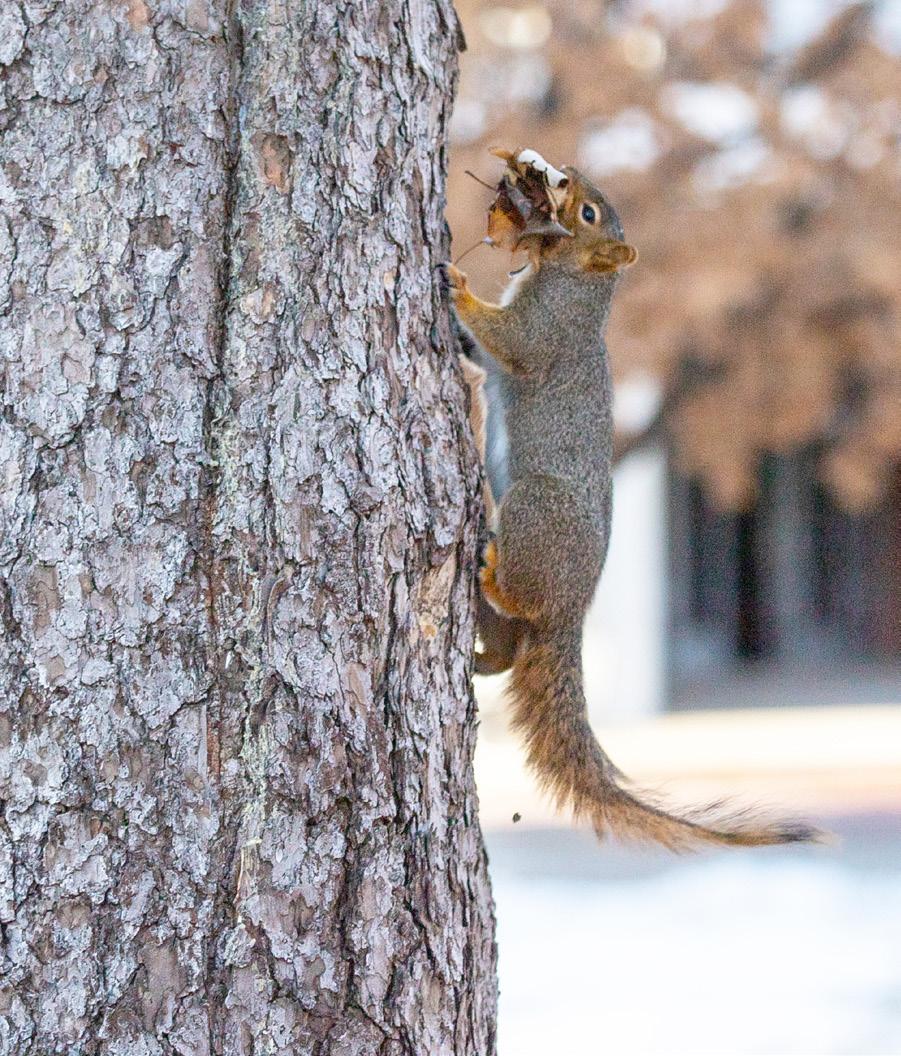
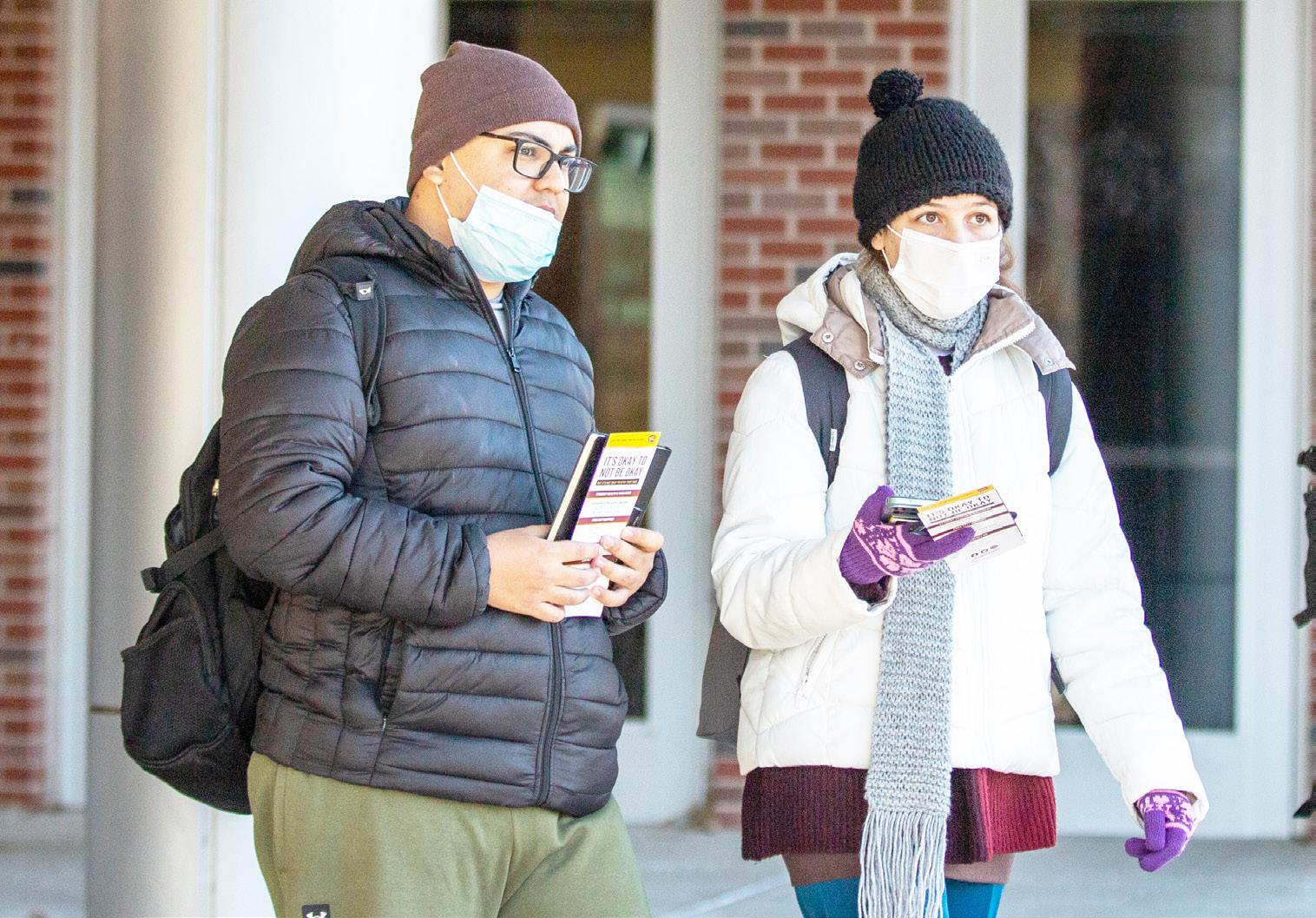
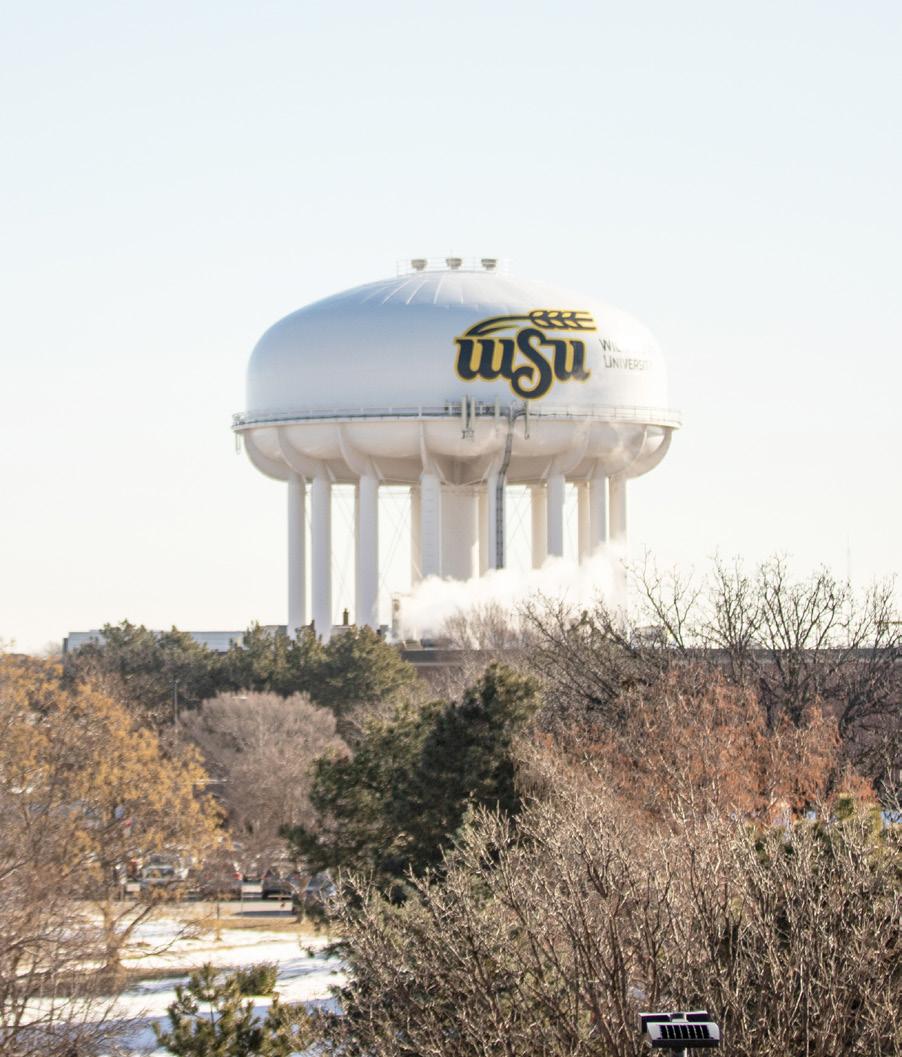
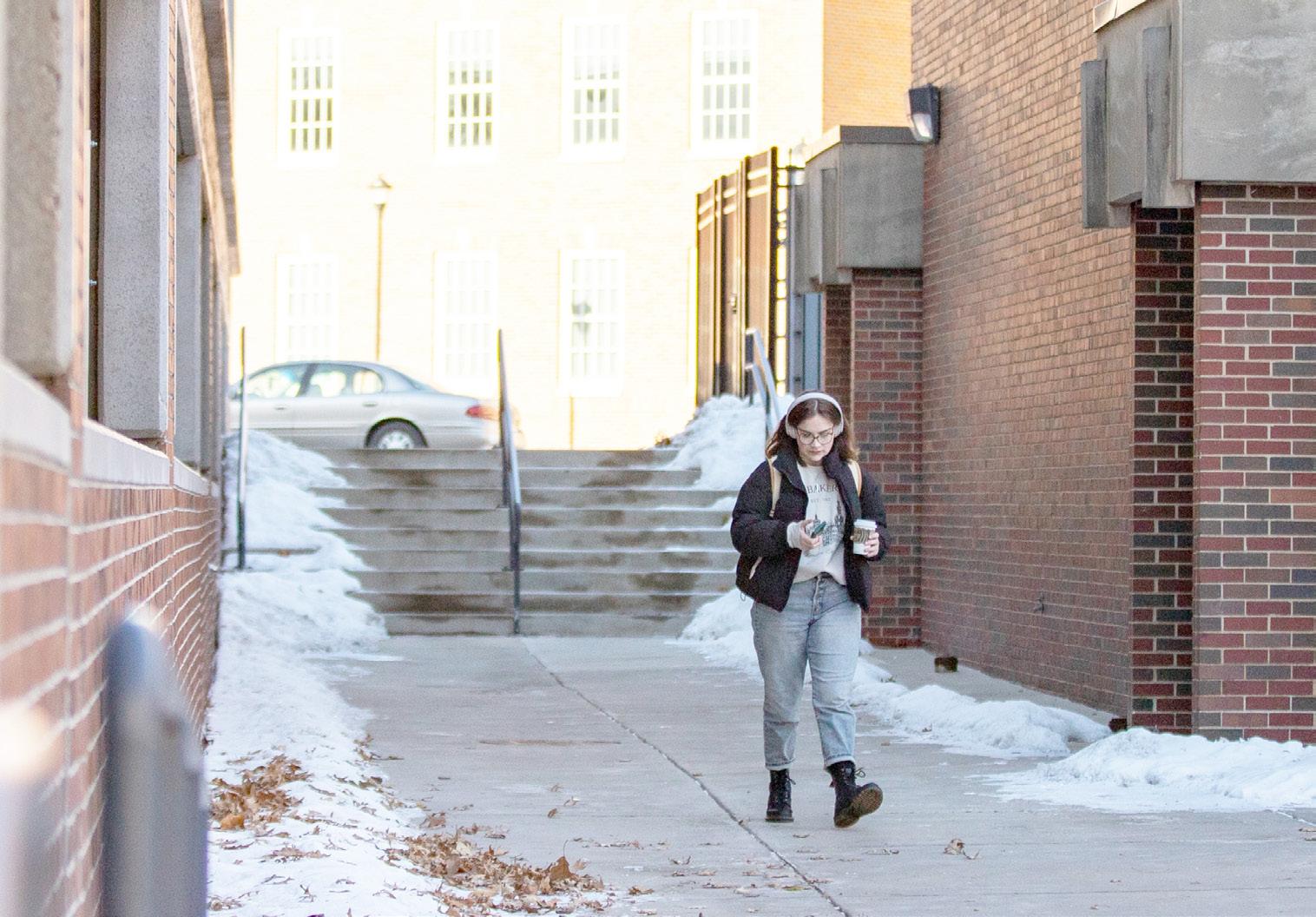
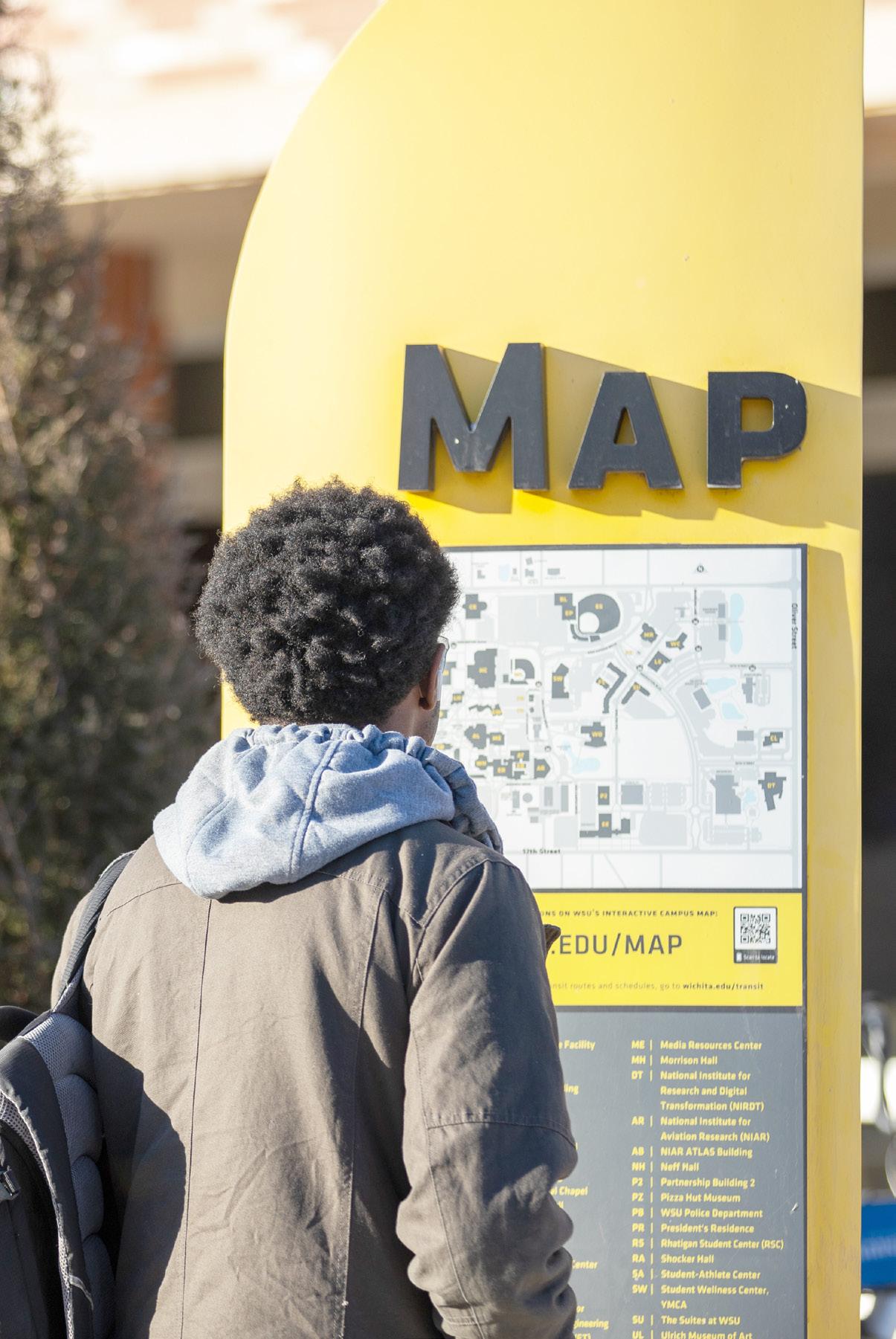

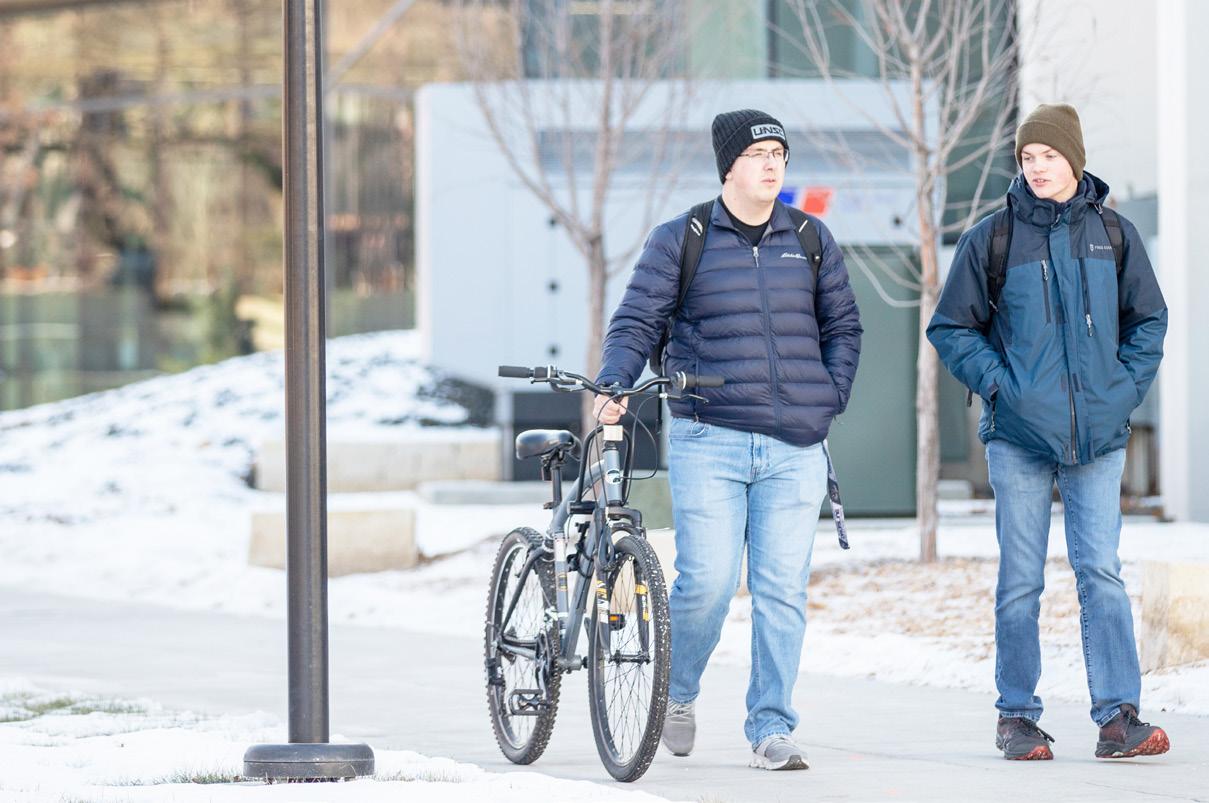
UPCOMING EVENTS
CLAYTON STAPLES VISITING ARTIST
EXHIBITION: THIS IS CAPTURED PAPER
MONDAY - FRIDAY
TILL MARCH 14
8 a.m. - 5 p.m.
McKnight Art Center, Clayton Staples Gallery, room 205
A collection of works from Jason Reblando, “This Is Captured Paper” contains photocollages from the American colonial era in the Philippines. A Filipino-American photographer, Reblando combines archival elements with modern photography to create a glance at the complex relationship between the Philippines and the United States.
LAST DAY TO ADD FULL-SEMESTER CLASSES OR CHANGE SECTIONS OF THE SAME COURSE
MONDAY, JAN. 27
Reach out to onestop@wichita.edu for more information.
SHRINKY DINKS TRINKET TABLE
MONDAY, JAN. 27
11 a.m. - 12:30 p.m.
Rhatigan Student Center
The Geology Department invites all students to make free Shrinky Dinks during Winterfest.
MENTAL WELLNESS AND PREVENTING SUICIDE TRAINING
MONDAY, JAN. 27
3 - 5 p.m.
Rhatigan Student Center, room 262
Sign up for this free event via myWSU under the myTraining section to learn about supporting the community and tools to assist someone in need. Students, faculty and staff are all welcome to sign up. All participants will receive a free Suspenders4Hope shirt.
COLLEGE OF FINE ARTS CONNOISSEUR SERIES
PRESENTS: ARTIST TALK WITH JASON REBLANDO
THURSDAY, JAN. 30
Artist talk 4 - 5 p.m.
Reception 5 - 6 p.m.
McKnight Art Center, room 210
A highly decorated photographer with a long list of appearances in various magazines and news sources, Reblando blends contemporary photography with social commentary. Reblando’s work can be viewed at jasonreblando. com.
PHILOSOPHY DEPARTMENT OPEN HOUSE AND LUNAR NEW YEAR PARTY
WEDNESDAY, JAN. 29
3:30 - 5 p.m.
Fiske Hall, room 110
Pick up a map if Fiske Hall and begin a scavenger hunt at this comeand-go event. The scavenger hunt will cover Fiske Hall, philosophy department facilities, offices and lounges, featuring free food, various activities and stickers.
MAJOR FOR A DAY WITH THE SCHOOL OF PERFORMING ARTS
FRIDAY, FEB. 7
Noon - 1 p.m.
Rhatigan Student Center
Experience the life of a WSU student in the School of Performing Arts with an informational session, a meet and greet with faculty and staff in the school, lunch, a class of your choosing, a campus tour and a free ticket to one School of Performing Arts production. The classes range from Dance, Musical Theatre, Theatre Performance and Design & Technical Theatre. Email performingarts@wichita.edu for RSVP. Tickets are $20.
HAVE AN EVENT YOU WOULD LIKE LISTED?
CONTACT THE ARTS EDITOR: arts@thesunflower.com
CONTACT THE NEWS EDITOR: news@thesunflower.com
